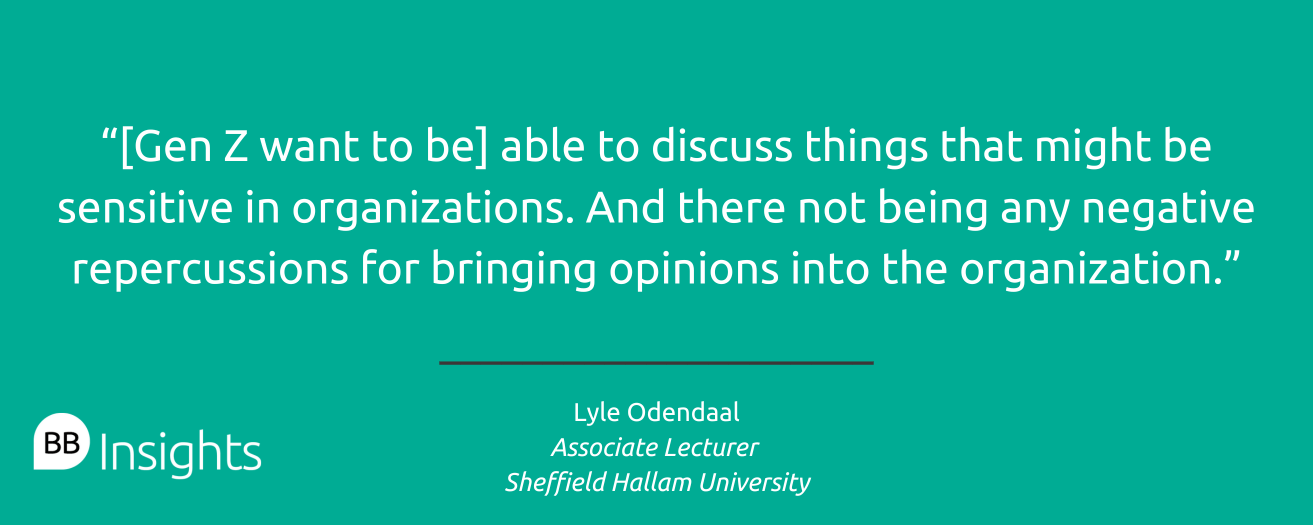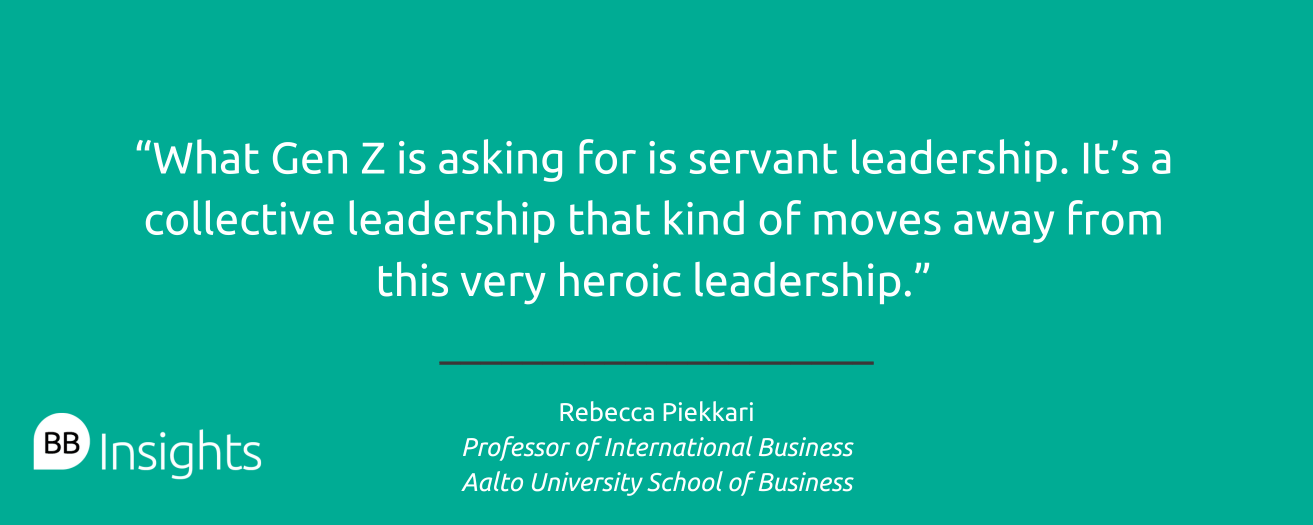Did your new employee just ghost your nine-a.m. meeting for a holistic yoga class? Can they convert from Word to PDF in 0.5 seconds but hold a pen like a totally foreign object? Did they just respond to your last email with a smiley face?
Well, it looks like you may have a Gen Z on your hands. Which isn’t all-too surprising since the tech-savvy generation—the first to have never known a world without the Internet—is now making their first Crocs-shaped stamp on the workforce. In fact, by 2025, it’s predicted that an entire 27% of those employed will be comprised of this eclectic group of those born between 1996 and 2012.
And for some employers, managers, and even fellow employees, it’s causing just a little bit of concern.
If you somehow missed the latest post-Covid work craze cropping up all over the Internet, you may not be familiar with the now normalized concept of ‘quiet quitting’; a movement pioneered by Gen Z in which they—in a classic conflict-avoidant fashion—don’t say they want to quit, but rather just…quietly stop working. This involves leaving at five-p.m. on the dot, and avoiding speaking up in meetings, working overtime, or volunteering for tasks.
This lower prioritization of work compared to earlier generations is also evident in the rise of other trends. According to an Economist Intelligence report, 83% of Gen Z are in favor of a four-day work week, while nearly three in four managers say that Gen Z employees are difficult to deal with.
And that’s if they even show up. According to a survey by Indeed, 93% of Gen Z have admitted to not attending a scheduled job interview, and an even more shocking 87% say they’ve decided to skip out on their first day.
It’s little wonder that they’ve now been labelled the lazy generation by everyone from disgruntled bosses to Whoopi Goldberg and The Telegraph’s Sophia Money-Coutts.
But how fair is this new workplace moniker? Could it be that Gen Z are just misunderstood?
Gen Z just want to be heard
One of the greatest predictors for how someone will act in the workplace is how they behave in the classroom. This makes Sheffield Business School finance lecturer, Lyle Odendaal—a professor who spends a good portion of his time preparing Gen Z for the corporate workforce—something of an expert.
“I don't particularly think that [Gen Z] are lazy. I think they just have different things that they expect from work,” he explains.
This statement is true when you look at the stats. Contrary to popular stereotyping, it appears Gen Z do want to work—LinkedIn estimates that 74% of Gen Z are ambitious to learn new skills and develop professionally, even on the weekends—it’s just that they now demand certain things from employers.
“One of those aspects is being able to discuss things that might be sensitive in organizations. And there not being any negative repercussions for bringing opinions into the organization.”
It makes sense that Gen Z feel the need to be in an environment where they can voice their thoughts. After all, not only have they grown up with an exposure to more opinions than ever (35% spend at least four hours a day on social media), they’re also used to projecting their views to an audience of hundreds, thousands, sometimes even millions of followers.
So, by extension, they want the organizations they work for to reflect their beliefs too.
In fact, according to a recent GMAC survey, 47% of Gen Z believe corporations should be involved in social or political events, compared to just 35% of millennials. As for the desired talking points? Some of the most pressing topics for Gen Z include sustainability, diversity, and mental health.
“Organizations need to understand what motivates the new talent that's coming in,” Lyle continues. “If they find ways to tap into that, I think that goes a long way in terms of motivating them.”

Gen Z need to trust leadership
But staying politically and socially active is only one part of the battle. Gen Z aren’t just motivated to end inequality in terms of race and gender: they’re also doing away with traditional corporate hierarchy too.
Rebecca Piekkari is a professor of International Business at Finland’s Aalto University School of Business.
“What Gen Z is asking for is servant leadership. It’s a collective leadership that kind of moves away from this very heroic leadership, where you would have one strong leader, but it's very much sort of a shared activity,” she says.
In a traditional office structure, you have a strict delineation of roles, stemming from the C-suite to middle management, all the way to the ground-level employees. Typically, this format is run under what can be classed as ‘heroic leadership’, where one overhead makes the majority of decisions for the rest of the company.
However, for a generation that has largely come of age through the fake news scandals of the 2010s and a pandemic shrouded in a veil of finger-pointing and mythmaking, Gen Z’s trust in authority figures is at an all-time low.
In fact, less than 15% of US Gen Zs across all political parties say they trust institutions such as big tech companies or Congress.
To counteract this, according to research conducted by Aalto University, Gen Z wants access to decision-making. This means a more flat-level business structure, somewhat reminiscent of Scandinavian office spaces, where the C-suite is always within view.
Part of this more egalitarian approach to office life is also reflected in Gen Z’s assertion over maintaining a work-life balance.
According to research by Zurich, a healthcare giant with over 50,000 employees, 42% of Gen Zs value spending time with friends and family, remote working, and flexible leave as their top priorities when looking for a job.
“Gen Z are very aware of the distinction between work and life so they are quite adamant about their right to have free time,” Rebecca says.

Gen Z want to matter
Before we start painting Gen Z as hyper-opinionated office mavericks—they also have a sensitive side.
According to Rebecca from Aalto University School of Business, another key part of tapping into Gen Z’s work ethic is making them feel like they belong.
“For this generation, it is very important to be part of a collective, whether it's at work or in studies,” she says.
These younger employees want to receive credit for the work they do—and to be able to add value through their own creativity.
Which means they want to be able to connect with their managers, too. According to a 2024 workplace survey, Gen Z consider honesty and integrity five times more important than even experience when it comes to their overheads.
As an addendum to this, Gen Z are also hungry for feedback. So much so that 73% say they’re willing to resign if they don’t receive it regularly.
“Increasingly, you get emails from students, and you see that in working life where they constantly want to hear how did I do? How did I perform?” Rebecca says.
“You have to be extremely gentle and extremely developmental when you deliver the suggestions for improvement,” she adds.
So, Gen Z work ethic: tardy, opinionated, and praise hungry. But lazy?
In a lot of ways, for this upcoming generation, it’s the opposite. In fact, their demands for work-life balance and for corporate activism have the potential to inspire businesses themselves to become more engaged. What will be important for maintaining a strong future workforce is employers and managers being able to tap into what makes Gen Z tick.



